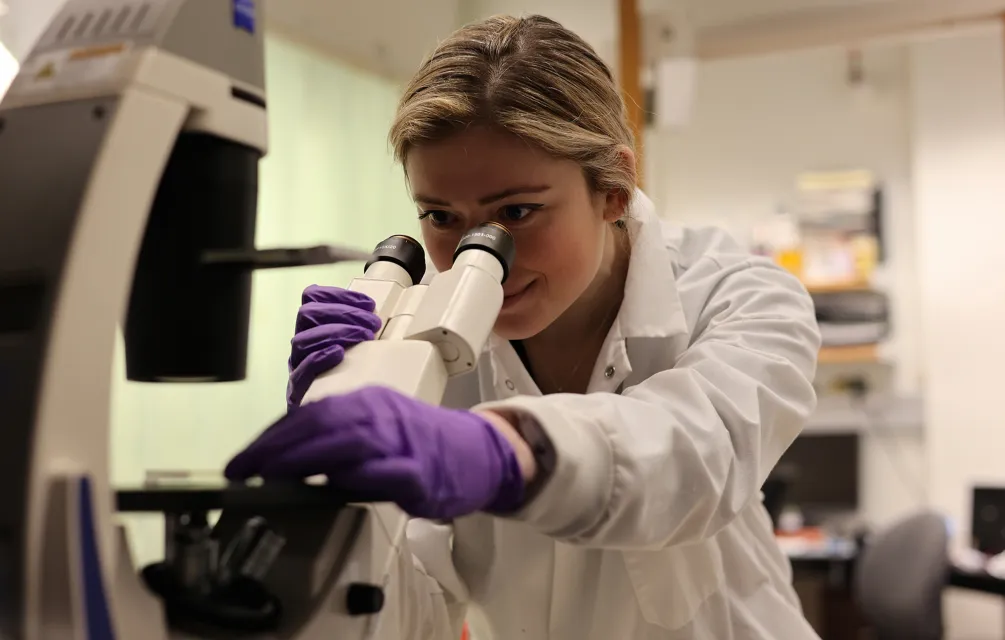Graduate Study
Biomedical Engineering

Prospective Students
Yale's Biomedical Engineering program offers graduate students access to cutting-edge innovations in instrumentation and engineering to better understand biology and human physiology, and the opportunity to be at the forefront of the development of new technologies for diagnosis, treatment, and prevention of human disease. Our research spans from engineering biomimetic systems and nanotechnology for drug delivery to visualizing and modeling organs including the heart and the brain.
Program Highlights
Biomedical Engineering at Yale is built on cross-disciplinary innovation with professors located in the School of Engineering & Applied Science and the Yale School of Medicine. As a student, you will benefit from this extensive collaborative network, exemplified by our faculty involvement in many interdisciplinary efforts including:
- The Physics and Engineering in Biology Program
- The Vascular Biology & Therapeutics Program
- The Yale Institute for Network Science
- The Wu Tsai Institute for Human Cognition
- The Yale Systems Biology Institute
- The Yale Cancer Center
- The Yale Center for Clinical Investigation
- The Yale Center for Biomedical and Interventional Technology
- The Magnetic Resonance Research Center
- The Yale PET Center
- Yale Stem Cell Center
Our faculty is committed to teaching and mentoring of the next generation of scholars, entrepreneurs, and technical leaders, to the discovery and dissemination of new knowledge, and ultimately to translating our research and innovations to improve the human condition. Our graduates go on to become leaders in their fields, driving innovation in industry, academia, government, patent law, and other areas. Join us to be part of a dynamic community where cutting-edge research meets real-world impact.
Graduate Degree Options
We offer three biomedical engineering graduate degree options:
The research leading to the Ph.D. degree in Biomedical Engineering spans a wide range of fields including biomechanics & mechanobiology, bioimaging & biosensing, biomolecular & biomaterials engineering, computational & modeling analysis, drug delivery and systems biology. The Terminal Master's degree typically consists of a set of required and elective graduate courses. Details on the requirements for each degree program are included in the Graduate Student Handbook.
The Master's in Personalized Medicine & Applied Engineering is managed jointly by the Yale School of Medicine merging clinical experience with engineering design applications.


